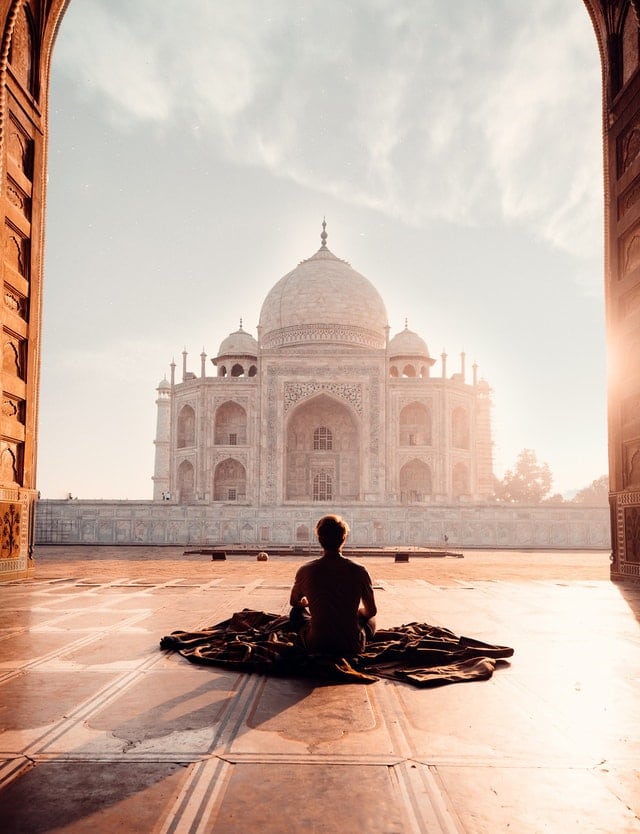The Magical World of Non-Fiction: 11 Sub-Genres To Explore
February 10, 2025
When we think about the publishing industry, we often associate it primarily with fiction. Books and fiction seem almost synonymous—after all, blockbuster series like Harry Potter by J.K. Rowling took the world by storm in 1997. However, the reality is that the majority of books sold in America are not fiction but nonfiction.
If you can’t imagine passing up an exciting novel for a nonfiction title, this might surprise you. But nonfiction is far more diverse than many people realize. Some of the most influential books in history fall under this category, selling millions of copies—like Elizabeth Gilbert’s phenomenal success, Eat, Pray, Love.
Let’s explore some of the most popular nonfiction subgenres and a few noteworthy books in each.
11 Nonfiction Sub-Genres To Explore
1. Biography
“The king himself rode a horse and shot arrows at a deer. However, the horse stumbled, causing him to fall off, but he was not injured. Looking around, he said, ‘Do not let the historians know about this.’”
— The Veritable Records of Taejong, Vol. 7, Article 4
The quote above comes from the Joseon Annals, an extraordinary early example of historical biography. Spanning 500 years, these records meticulously documented court activities, military campaigns, and the personal lives of Korea’s Joseon kings.

Biographies have existed for centuries, in one form or another.
In ancient Egypt, the wealthy commissioned their life stories to be carved onto tomb walls before death. In ancient Greece, historians documented the lives of famous statesmen and politicians for posterity.
Modern biographies, however, focus less on recording every minute detail and more on telling compelling narratives. Steve Jobs by Walter Isaacson is a prime example—offering an insightful and thought-provoking look at the Apple founder’s life.
2. Autobiography
An autobiography, like a biography, tells the full story of a person’s life—but from the author’s own perspective. While memoirs focus on a particular theme or moment in time, autobiographies typically offer a chronological account of the author’s experiences, achievements, and struggles.
A well-written autobiography allows readers to step inside the mind of a public figure, gaining firsthand insight into their thoughts, decisions, and defining moments. One of the most famous examples is The Autobiography of Malcolm X, co-written with journalist Alex Haley, which provides a deeply personal and powerful account of Malcolm X’s transformation and activism.
Another compelling autobiography is Long Walk to Freedom by Nelson Mandela, which details his early life, political struggles, and eventual rise to the presidency of South Africa.
3. Memoir
The distinction between memoir and autobiography is subtle but significant. While both tell real-life stories, a memoir focuses on a specific theme or period rather than a person’s entire life.

Common memoir themes include grief, coming of age, personal transformation, and overcoming adversity.
For example, Cathy Rentzenbrink’s The Last Act of Love is a poignant reflection on grief and loss, while Tara Westover’s Educated recounts her unconventional upbringing and journey toward self-discovery.
4. Family History Books
Family history books take a deeply personal approach to storytelling, chronicling the lives of ancestors, preserving heritage, and connecting generations. These books often blend historical research with personal narratives, offering a unique perspective on the past.
A well-crafted family history book can be a treasured keepsake, helping families preserve their legacy for future generations. Some authors take a broader approach, weaving family stories into larger historical events. For example, Alex Haley’s Roots: The Saga of an American Family is a landmark work that traces Haley’s ancestry from Africa through the generations of his enslaved ancestors in America.
Other family history books take a more personal approach, using genealogical research, family letters, and oral histories to create a compelling narrative.
5. Self-Help and Personal Development
With the self-help industry projected to reach a staggering $81.77 billion globally by 2032, it’s no surprise that self-help books continue to sell in massive numbers.

During the pandemic alone, Americans purchased more than 40 million self-help books.
This genre has been popular for decades, and its influence shows no sign of waning. One of the most famous self-help books of all time, Dale Carnegie’s How to Win Friends and Influence People, has sold over 30 million copies.
A more recent success, James Clear’s Atomic Habits, has sold over 20 million copies worldwide and has remained on the New York Times bestseller list since its publication in 2018.
6. Investigative Journalism
Investigative journalism can be thrilling, dangerous, and deeply revealing. This genre consists of books written by journalists who uncover corruption, crime, or abuses of power—often at great personal risk.
Classic examples include All the President’s Men by Carl Bernstein and Bob Woodward, which exposed the Watergate scandal and ultimately led to President Nixon’s resignation. More recently, Bad Blood by John Carreyrou chronicles the dramatic rise and fall of Elizabeth Holmes and her fraudulent biotech company, Theranos.
7. History
History books are often overlooked, but they offer some of the most fascinating narratives—especially when they focus on well-researched, compellingly told stories.

These books don’t simply recount dry facts; they explore the forces that have shaped our world.
A great example is Yuval Noah Harari’s Sapiens: A Brief History of Humankind, which delves into the evolution of human civilization.
For those interested in political history, The Last Tsar: The Abdication of Nicholas II and the Fall of the Romanovs by Tsuyoshi Hasegawa is a gripping account of the end of Russia’s imperial dynasty.
8. True Crime
True crime books offer a chilling look at real-life crimes and the people behind them. While they must be factually accurate, many authors incorporate narrative techniques to create a more immersive reading experience.
A defining example of the genre is Truman Capote’s In Cold Blood, though it has been criticized for blending fact with fiction. A more recent standout is Michelle McNamara’s I’ll Be Gone in the Dark, which chronicles her obsessive hunt for the Golden State Killer.
9. Travel Writing
For those with a wanderlust spirit, travel writing can transport readers across the globe.

This genre is not about guidebooks or travel diaries—it’s about storytelling that captures the essence of a place.
Paul Theroux is a legend in this field, with books like The Great Railway Bazaar and Dark Star Safari offering rich insights into different cultures.
For a humorous take on travel, Bill Bryson’s Notes from a Small Island and Neither Here nor There provide witty and entertaining reflections on his journeys.
10. Science and Nature
Books about science and the natural world offer awe-inspiring insights into the planet and beyond.
Famed naturalist David Attenborough’s Adventures of a Young Naturalist: The Zoo Quest Expeditions captures the beauty of nature through his early travels. Meanwhile, Peter Wohlleben’s The Hidden Life of Trees offers a fascinating glimpse into the secret world of forests and the communication between trees.
11. Business and Economics
For those interested in finance, entrepreneurship, and economic theory, business books can be both educational and eye-opening.
Freakonomics by Steven D. Levitt and Stephen J. Dubner presents economic principles in an engaging, accessible way. Meanwhile, Robert T. Kiyosaki’s Rich Dad, Poor Dad has inspired millions to rethink their approach to wealth-building.
Other Nonfiction Subgenres Worth Noting:
- How-To and Manuals
- Philosophy and Religion
- Health and Wellness
- Parenting and Relationships
- Art, Music, and Culture































